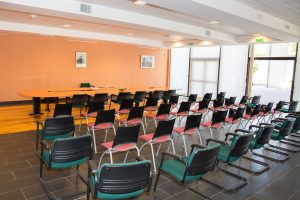Last night my father, Ahmad Ghais, spoke to a group I belong to here in Colorado called the International Business Circle. He spoke (alongside Monir Ludin and moderator Paul Kullman) on the topic of the origins of Islamist extremism. It was a great discussion (and nice for me to be a relaxed audience member instead of the speaker!). As you might expect, the Arab Spring came up, and with it the question of whether Arabs are “ready for democracy.”
Well, this one always gets me a little riled up. Some say Arab culture or the Islamic faith is not compatible with democracy, which always strikes me as condescending. Isn’t everyone in the world capable of expressing their interests and needs in the political sphere? Does anyone really deserve to live in a society where innocents can be thrown in jail? Some folks are enthusiastic to help political development in other countries by setting up democratic institutions modeled after ours; others say it’s none of our business how another country governs itself and we have no right to impose our system on others.

The problem with these debates is that when we talk about democracy, or even a broader term like good governance, the assumption is that the Western models–parliamentary systems and presidential systems–are the only way to go. These standard models do bear features of Western culture, especially individualism and competitiveness, and I’m not aware of much serious work in helping develop new or hybrid models that respond to local needs and cultures (although this book presents the interesting case of Malaysia).
If we break down this huge concept democracy into its component parts or functions, we can ask how these functions can be accomplished in a way suitable to the particular society. Components might include government accountability, popular participation, separation and limitation of powers, rule of law, etc. Let’s take popular participation as an example. As Monir pointed out last night, there is a long tradition in Islamic thought and practice of shura, or consultation. What if we asked, Where is shura working well? Who conducts it? What institutions and skills are required? What are its shortcomings and how might they be overcome? How can we replicate what works and adjust what doesn’t?
The practice of facilitation has much to offer here to help resolve the tension in wanting to help but not wanting to impose our way of life. A facilitator manages the process, while group participants do the substance, from conveying their views and interests and needs to making decisions. The facilitator can be a catalyst, but is in no way imposing outcomes.
What if every not-so-democratic country undertook the exercise, in an inclusive, participatory manner, of figuring out what good governance should look like for themselves? What if local facilitators managed the discussion and fed results into a national dialogue or a constitution-building forum? What if the role of the outsider was to help stimulate and facilitate this discussion, in partnership with local facilitators? Maybe then we’d end up with some models of democracy that might actually work in their host countries.
Of course, any good governance requires the slow, painstaking process of building institutions as well as the mental shift among citizens of understanding their own role in governance. Last night, my dad pointed out that most Arabs identify governance with the individual leader rather than with institutions. In such respects, it is true that most Arab societies have a long way to go. We also need to remember, of course, that our own system of governance is far from perfect, that our democracy will (hopefully) continue to evolve, and that we don’t have the perfect recipe even for our own society, let alone others. Maybe, though, we can help others if we come with humility and a facilitative approach.
My congratulations to your father and the other fellow for their remarks. There can be no doubt that Arabs want democracy. The Arab Spring was ample proof of that. The question to ask is, What would an Arab democracy look like? That is, one that reflected the unique customs, history, religious traditions, etc. of Arab societies. Wonderful topic. Thanks, Gary
Thanks Gary!
Good topic Suzanne. Even the weirdest forms of non western democracies often have some consultative mechanisms and certain checks and balances. Arab democracy might be democratic, but it would probably look different from what we are used to here. Consultative councils, heavy dose of hierarchical decisionmaking and the ongoing struggle between cross cutting and sectarian political parties.
Thanks Anthony… Yes we might not like all elements but it’s for the relevant domestic population to like or not.
Quite insightful Suzanne. My position too. I am looking to help a few traditional communities upgrade their governance systems. It has been my conviction for sometime that they needed to have predictable behaviors if they are to eliminate mistrust, corruption, and mismanagement of whatever development aid comes to them. Further, governance modeled to their local needs can help improve decision-making and help them benefit from their local resources in the face of investors. Kindly share with me on models of governance for me to kickstart a discussion with them.